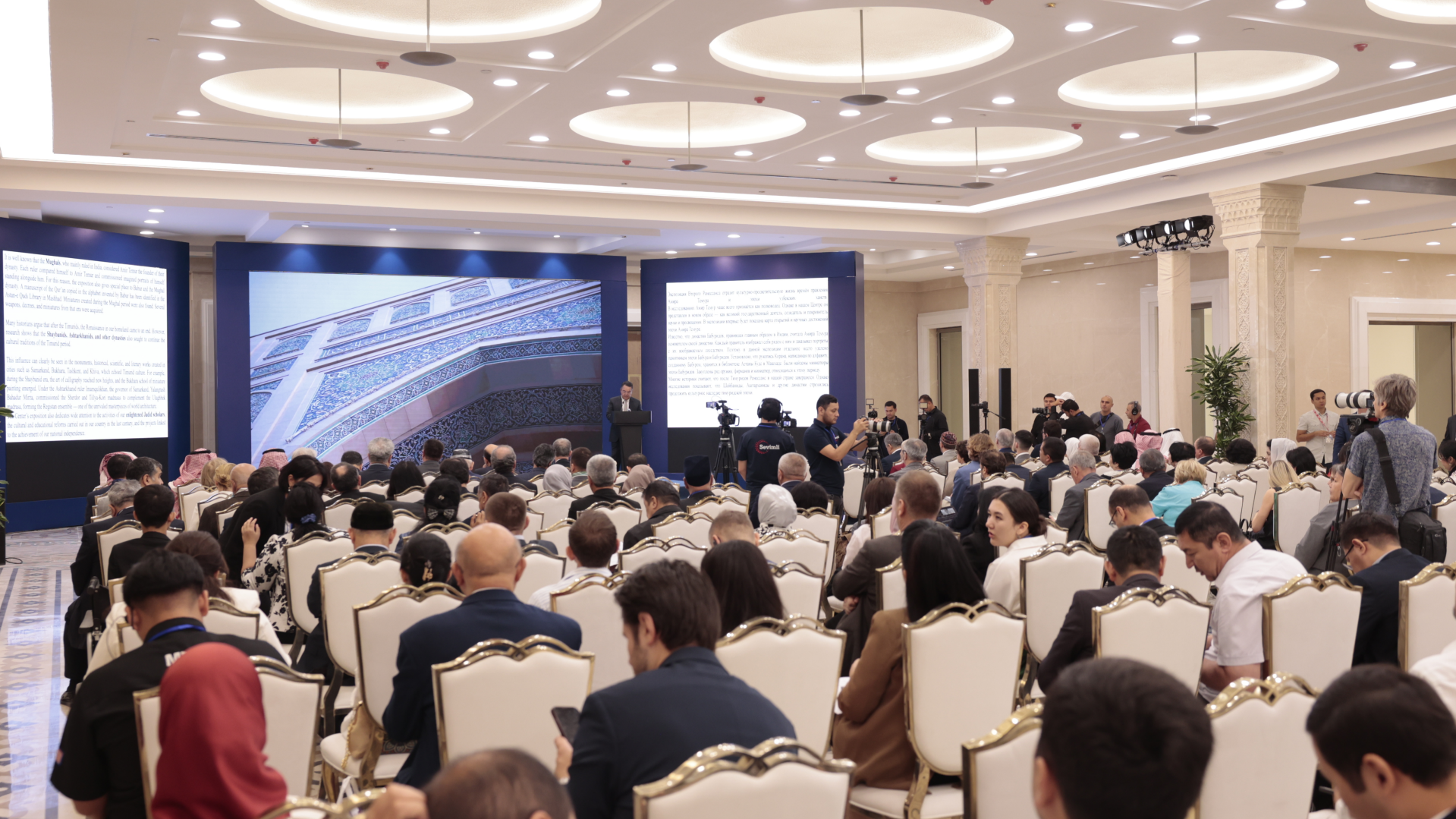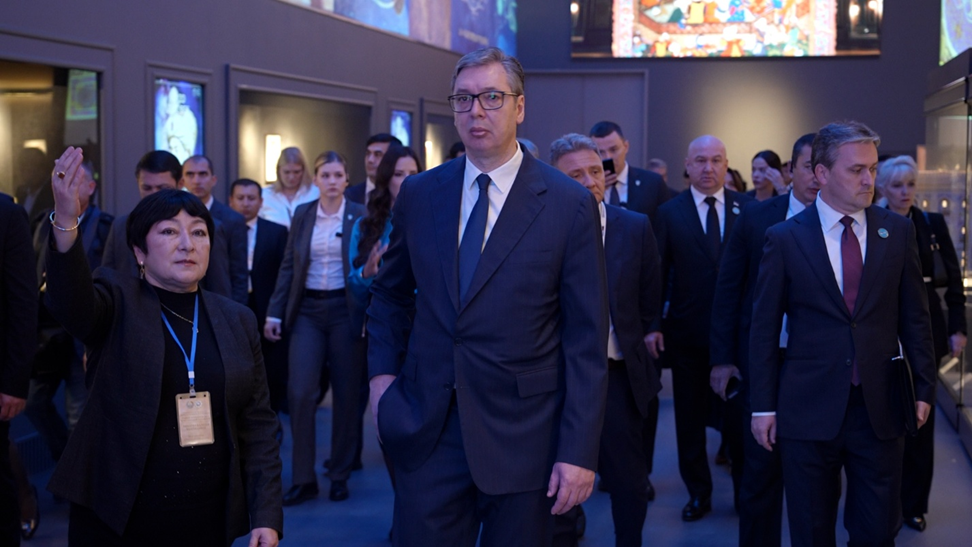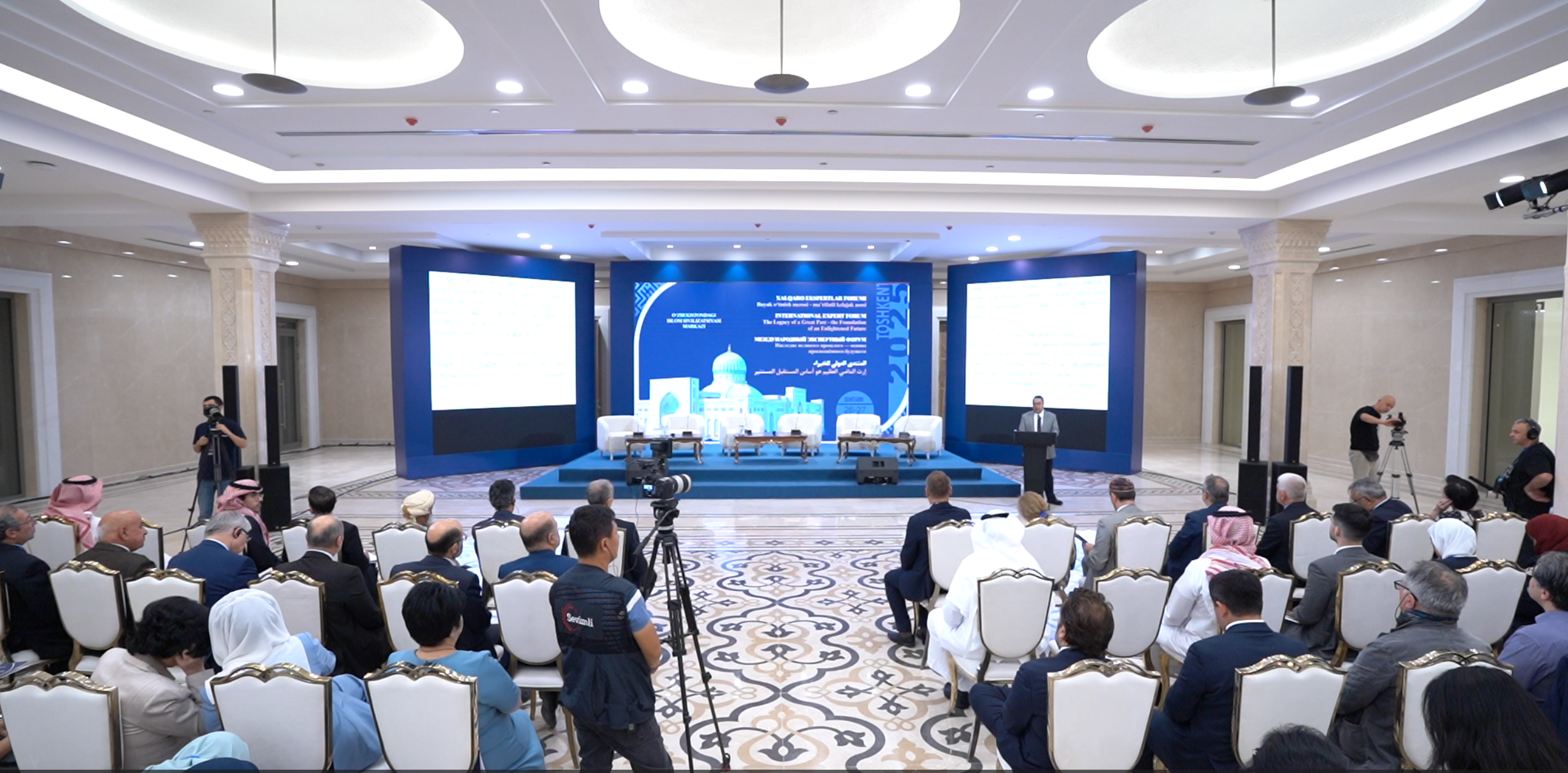Representatives of the Center of Islamic Civilization participated in an international seminar held in Malaysia

On June 30 – July 1 of this year, the Institute of Islamic Civilization of Malaysia, in cooperation with the Uzbek side, organized the fifth scientific-practical seminar titled “Bridge of wisdom: The contribution of the Muslim world to science, philosophy, and spiritual lineage”, the “Dunyo” News Agency correspondent reports.
The official opening ceremony was attended by Faisal Muhammad, Vice-Rector of the National University of Malaysia; Fariza Sham, Director of the Institute of Islamic Civilization of Malaysia; Muzaffar Komilov, Rector of the International Islamic Academy of Uzbekistan; Karomiddin Gadoev, Ambassador of Uzbekistan; the leadership of the Center of Islamic Civilization in Uzbekistan; and representatives of the Imam al-Bukhari, Imam al-Tirmidhi, and Imam al-Maturidi Research Centers.
In his speech, Muzaffar Komilov, Rector of the International Islamic Academy of Uzbekistan, provided participants with detailed information about the reforms being carried out in the religious and educational sphere in our country. He called on young researchers to actively promote the ideas of tolerance and unity in society through science and to expand bilateral exchanges of scholars and research in this regard.
Ambassador Karomiddin Gadoev spoke about the invaluable contribution of the great scholars and thinkers who emerged from the territory of Uzbekistan not only to the Muslim world but also to the advancement of world science and civilization. He emphasized that jointly studying the rich scholarly heritage of our great ancestors and conveying our identity and history to the younger generation is an important step on the path to building the New Uzbekistan and the Third Renaissance, as put forward by the head of state.
The two-day seminar included sessions such as “Political science, political philosophy, and ethical governance” and “Revolutionary innovations in mathematics, astronomy, and medical science”. Nearly 50 scholars from the Muslim world participated with 27 research presentations.
It is noteworthy that this joint research platform, aimed at studying the rich scholarly heritage of great scholars of the Islamic civilization, was established in 2020, with its fourth seminar held in 2024 in Tashkent.
Following the official visit of the President of Uzbekistan to Malaysia in February this year, cooperation in this field has further intensified.
Fariza Sham, Director of the Institute of Islamic Civilization of Malaysia, said:
“In keeping with our tradition, we have once again held the seminar of Islamic civilization scholars for the fifth time under the new theme “Bridge of wisdom: The contribution of the Muslim world to science, philosophy, and spiritual lineage”.
Our cooperation, which began five years ago through the signing of a memorandum of understanding with the Uzbek side, has now developed into a permanent dialogue and research platform.
The Institute of Islamic Civilization is currently working closely with a number of prestigious institutions in Uzbekistan.
This seminar, organized with the support of the Embassy of Uzbekistan, is of great importance as a platform for Muslim scholars, educators, and researchers to study and revisit the great scientific heritage of Muslim scholars in various fields such as science, technology, religion, psychology, society, fiqh, hadith, and tafsir.
Muslim scholars of the Golden Age of Islamic civilization had a significant impact on the development of science, and revisiting these contributions in modern contexts is very important for us.
We hope that the theories, principles, and knowledge recorded in classical Islamic manuscripts will be rediscovered and deeply studied by today’s generation. This will help preserve our intellectual heritage and ensure that it continues to benefit the Muslim Ummah”.
The outcomes of the seminar will contribute to the creation of mutually beneficial research projects between the institutions of the two countries, the publication of books and articles, and the further strengthening of academic ties through staff and student exchange programs between Malaysia and Uzbekistan.
Most read

Over 100 experts from more than 20 countries of the world are in Tashkent!

President of Serbia Aleksandar Vučić visited the Islamic Civilization Center in Uzbekistan

The Center for Islamic Civilization – a global platform leading towards enlightenment











